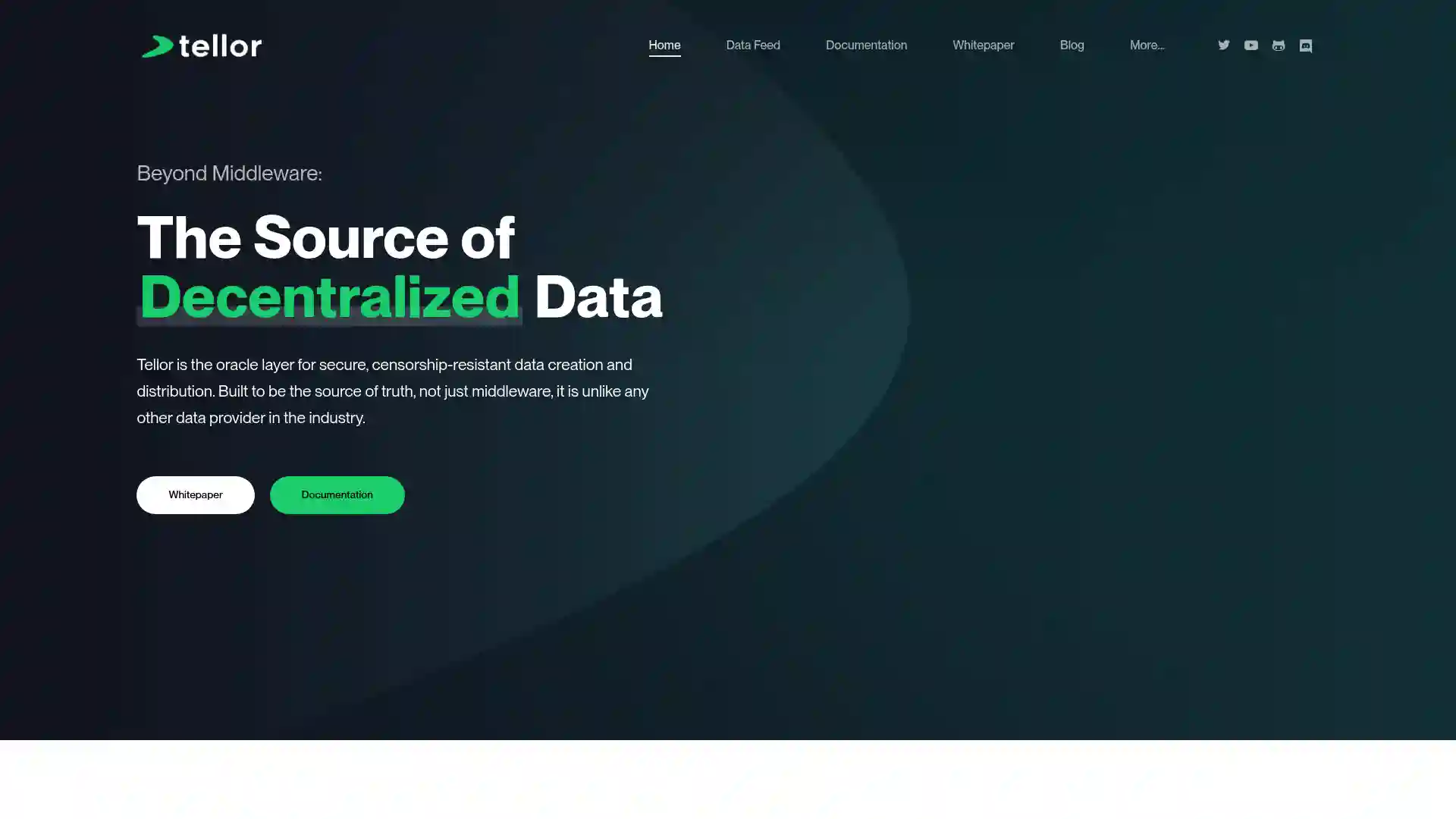Tellor Tributes (TRB)
Tellor is a decentralized oracle network designed to enhance the functionality of Ethereum-based smart contracts by providing access to off-chain data. In the blockchain ecosystem, particularly on Ethereum, smart contracts are self-contained and cannot directly access information outside the blockchain. Tellor addresses this limitation by offering a reliable and secure way to bring real-world data onto the blockchain.
How Tellor works
Tellor operates by allowing users to request the value of an off-chain data point, such as the ETH/USD exchange rate. This request is addressed by a network of miners who compete to add the requested data to an on-chain data bank. This data bank is then accessible to all Ethereum smart contracts, thereby expanding their capabilities.
The role of miners in Tellor
Miners in the Tellor network play a crucial role in ensuring the accuracy and security of the data provided. When a data request is made, miners stake a certain amount of cryptocurrency to participate in the process. They then compete to provide the requested data, and the first miner to submit the correct value has their data added to the blockchain. This competitive process helps maintain the integrity and reliability of the data.

| Ticker | TRB |
| Category | Business Services |
| Website | http://www.tellor.io/ |
| @WeAreTellor | |
| Contract Addresses | |
|---|---|
| ethereum | 0x88...a0 Copied! Copied! |
| manta-pacific | 0x8d...6a Copied! Copied! |
| optimistic-ethereum | 0xaf...88 Copied! Copied! |
| lisk | 0x66...50 Copied! Copied! |
| xdai | 0xaa...f2 Copied! Copied! |
| arbitrum-one | 0xd5...42 Copied! Copied! |
| polygon-pos | 0xe3...f1 Copied! Copied! |
Incentive mechanisms
Tellor employs incentive mechanisms similar to those found in other cryptocurrency systems to encourage participation and ensure the network's security. The main incentive is the issuance of Tellor's native token, Tributes. Users who request data pay miners in Tributes, which serves as compensation for their efforts in gathering and verifying the data. This mechanism not only incentivizes miners but also ensures that the network remains decentralized and robust.
Tellor's smart contract
The main Tellor smart contract plays a pivotal role in the network's functionality. It creates a time series of each requested data point, effectively building a historical record that can be accessed by decentralized applications. This capability makes Tellor a valuable resource for applications that require reliable and up-to-date data.
Standardizing data sources
One of Tellor's primary goals is to become the standard source of high-value data for decentralized applications. By providing a trustworthy and decentralized method for accessing off-chain data, Tellor aims to support the growth and development of the decentralized finance (DeFi) ecosystem and other blockchain-based applications that rely on accurate real-world information.
